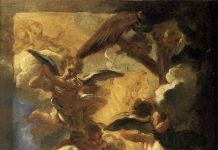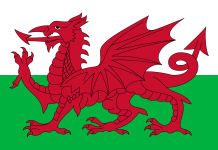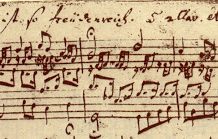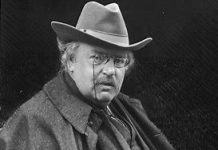There are two saints commemorated on this June 12th named Guy, and I know not whether this was planned. Certainly, there are no coincidences in God’s providence, and we may beg both their intercession: Come on, Guys! The first was a martyr during the persecution of Diocletian in the early fourth century; he had tried to convert the son of the governor, and was beheaded for his noble efforts.
The other was one of the early companions of Saint Francis of Assisi. Born in 1185, he was renowned for his humility and simplicity of life, who was inspired by Francis’ ideal to live out the Gospel in the most radical and literal way. He died in 1250, and was canonized by Pope Gregory XIII, whose spiritual director was Saint Philip Neri, who also loved the Franciscan ideal.
(As an aside, see here for the evolution of the term ‘guy’, from its initial reference to those who dressed like Guy Fawkes, the Catholic revolutionary against the Protestant King James I; then to a generic male, and ‘guys’ to a group of them; then broadening even further to include women (even before the transgender insanity), before which the fairer sex were colloquially called ‘dolls’, as in ‘Guys and Dolls’. But that does not seem quite appropriate in our current milieu. But, then, customs do come and go, even if this writer wishes they were more stable and traditional – more on that, anon).
The other saint to mention is Saint John of Saint Facundo (+1470), also called John of Sahagún, a Spanish Augustinian. He was born into a prominent family, and could have had it all, as the saying goes, but gave it all up for God. Educated by the Benedictines he was ordained a priest in 1445. On August 28th, 1463 – the feast of Saint Augustine – he joined the Order of Hermits named after the great bishop, and which had adopted the rule he had written. From then on, Father John was known simply as ‘Brother John’, taking his spiritual life to another level. It was said he could read hearts, and not much could be hidden from him. What made him stand out was his unfeigned fearlessness, preaching even to the rich and powerful, warning them of the bitterness of their end, should they not mend their ways. He would be mocked and ridiculed and even threatened for his efforts, as well as pelted with mud and sticks for his efforts, and neither broke his bones, nor his spirit.
He fell ill in 1479 – with some suggesting he had been secretly poisoned by an woman aggrieved by his words – and died on June 11th that year. He was canonized by Pope Benedict XIII in 1729, but his feast removed from the calendar in the revisions of 1969. We should not forget him, though, and pray to the great saint, that pastors and shepherds in our own day find the courage to rebuke those in temporal power who need reminding, even if they die in the doing. Nay, especially so.











